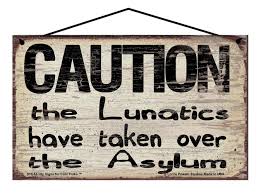
Breaking News
 Where will the partial solar eclipse be visible on Sept. 21?
Where will the partial solar eclipse be visible on Sept. 21?
 The groundswell against property taxes: A fight over ownership and equity
The groundswell against property taxes: A fight over ownership and equity
 Toxic Fumes Are Leaking Into Airplanes, Sickening Crews and Passengers
Toxic Fumes Are Leaking Into Airplanes, Sickening Crews and Passengers
 Liberalism is More than a Mental Illness – It's TERRORISM against America's Youth
Liberalism is More than a Mental Illness – It's TERRORISM against America's Youth
Top Tech News
 ORNL tackles control challenges of nuclear rocket engines
ORNL tackles control challenges of nuclear rocket engines
 Tesla Megapack Keynote LIVE - TESLA is Making Transformers !!
Tesla Megapack Keynote LIVE - TESLA is Making Transformers !!
 Methylene chloride (CH2Cl?) and acetone (C?H?O) create a powerful paint remover...
Methylene chloride (CH2Cl?) and acetone (C?H?O) create a powerful paint remover...
 Engineer Builds His Own X-Ray After Hospital Charges Him $69K
Engineer Builds His Own X-Ray After Hospital Charges Him $69K
 Researchers create 2D nanomaterials with up to nine metals for extreme conditions
Researchers create 2D nanomaterials with up to nine metals for extreme conditions
 The Evolution of Electric Motors: From Bulky to Lightweight, Efficient Powerhouses
The Evolution of Electric Motors: From Bulky to Lightweight, Efficient Powerhouses
 3D-Printing 'Glue Gun' Can Repair Bone Fractures During Surgery Filling-in the Gaps Around..
3D-Printing 'Glue Gun' Can Repair Bone Fractures During Surgery Filling-in the Gaps Around..
 Kevlar-like EV battery material dissolves after use to recycle itself
Kevlar-like EV battery material dissolves after use to recycle itself
 Laser connects plane and satellite in breakthrough air-to-space link
Laser connects plane and satellite in breakthrough air-to-space link
 Lucid Motors' World-Leading Electric Powertrain Breakdown with Emad Dlala and Eric Bach
Lucid Motors' World-Leading Electric Powertrain Breakdown with Emad Dlala and Eric Bach
Futility of Trying to Reason With Lunatics

For several years I've been turning over in my mind an idea that initially struck me as far-fetched, but now strikes me as a distinct possibility. Could it be that people suffering from some degree of mental illness are now heavily influencing or even directing cultural, political, and economic affairs? To put it more bluntly, are we now being constantly buffeted and even, in some jurisdictions, governed by lunatics?
I'd already been pondering this for some time when I stumbled across an essay that Carl Jung wrote in 1957 titled The Plight of the Individual in Modern Society. His opening reflections strike me as an apt description of the irrational and destabilizing phenomena we've witnessed in recent times. I have highlighted in bold the sentences that strike me as the most relevant to our situation today.
Everywhere in the West there are subversive minorities, who—sheltered by our humanitarianism and our sense of justice—hold the incendiary torches ready, with nothing to stop the spread of their ideas except the critical reason of a single, fairly intelligent, mentally stable stratum of the population. One should not, however, overestimate the thickness of this stratum. . . .
Taking plebiscites as a criterion, one could, at an optimistic estimate, put its upper limit at about 40% of the electorate. A rather more pessimistic view would not be unjustified either, since the gift of reason and critical reflection is not one of man's outstanding peculiarities. And even where it exists, it proves to be wavering and inconstant, the more so, as a rule, the bigger the political groups are. The mass crushes out the insight and reflection that are still possible with the individual, and this necessarily leads to doctrinaire and authoritarian tyranny if ever the constitutional state should succumb to a fit of weakness.
Rational argument can be conducted with some prospect of success only so long as the emotionality of a given situation does not exceed a certain critical degree. If the affective temperature rises above this level, the possibility of reason having any effect ceases, and its place is taken by slogans and chimerical wish fantasies. That is to say, a sort of collective possession results, which rapidly develops into a psychic epidemic.



